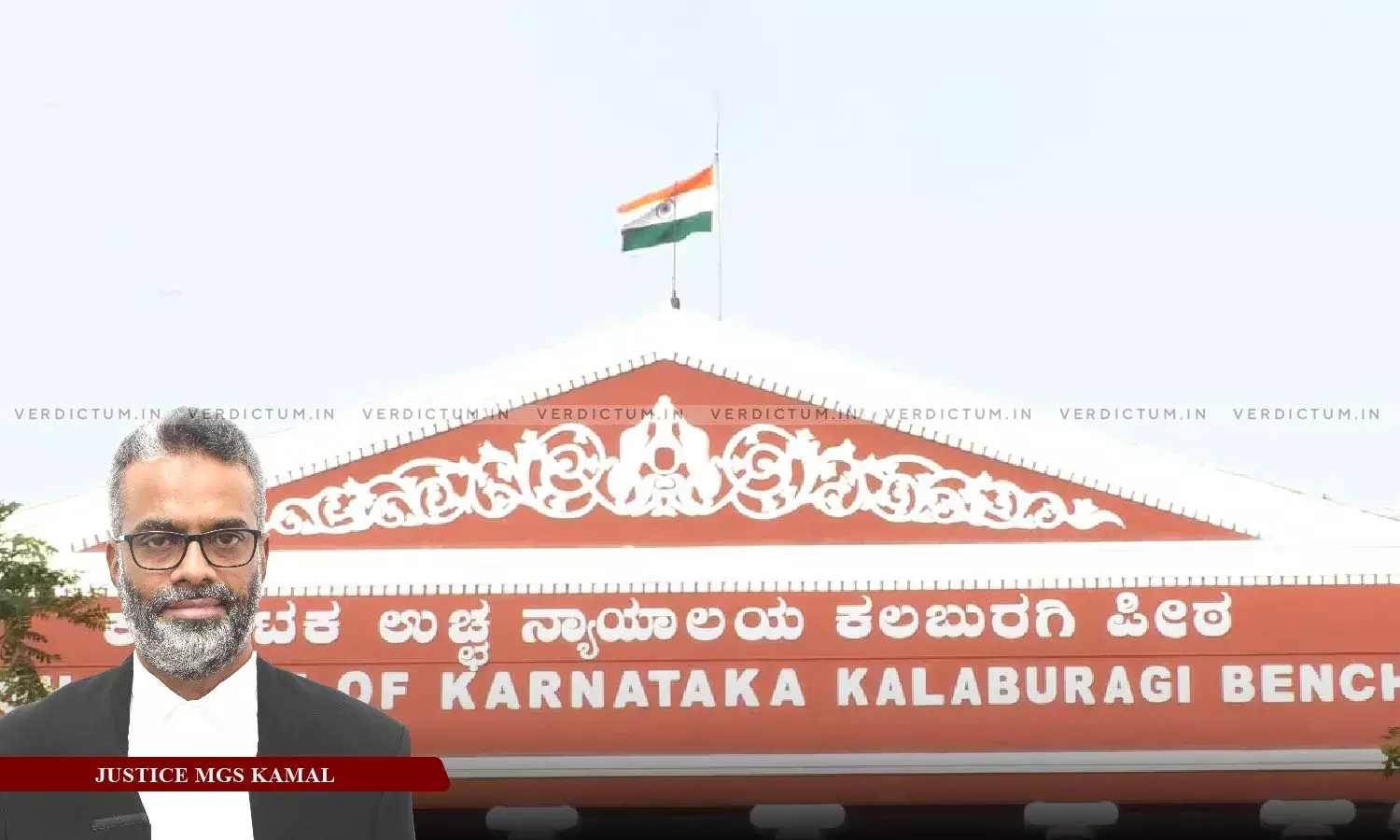Order 41 Rule 22 CPC | Respondent In An Appeal Can Challenge Trial Court's Finding Without Filing Appeal or Cross Objection: Karnataka HC

Justice M.G.S.Kamal, Karnataka High Court
The Karnataka High Court held that a respondent to an appeal is entitled to question the findings of a trial court without filing an appeal or cross objection.
The Court allowed an appeal challenging the order and judgment of the First Appellate Court that partially granted the plaintiff's appeal overturning the Trial Court's judgment that the plaintiff was entitled to a half share in all properties except item No.1.
The Court noted that the first appellate court failed to address the issue solely because the Appellant did not file a cross-objection. This constitutes an error on the part of the first appellate court for not addressing and adjudicating the matter.
The Bench of Justice M. G. S. Kamal observed, “issue No.3 having specifically framed by the trial court with regard to validity or otherwise of the status of defendant No.6 with that of defendant No.1 and the same having been answered in the negative, in the appeal filed against the decree by the plaintiff, defendant No.6 is entitled to state that such a finding ought to have been in her favour without filing an appeal or the cross objection”.
Advocate Chaitanya Kumar C. M. appeared for the Appellant and Advocate Hema L. K. appeared for the Respondent.
The High Court received an appeal concerning a property partition dispute initiated by the plaintiff, who sought a share in joint family assets due to alleged neglect by her father, defendant No.1. Despite efforts at reconciliation, the plaintiff filed suit for partition. While defendants 1, 2, and 6 contested, defendants 3 to 5 did not participate.
The Trial Court dismissed the suit, leading to an appeal by the plaintiff. The Appellate Court partially granted the appeal, granting the plaintiff a share in most properties. It noted the trial court's rejection of defendant No.1's claim regarding defendant No.6's marital status and observed the plaintiff's right as the sole surviving co-parcener. Defendant No.6 contested this decision in the higher court.
The Court framed the following issue: “Where a suit of the plaintiff for partition is dismissed on merit and the plaintiff has preferred an appeal, whether a finding on an issue against the defendant is required to be considered by the appellate court, though the said defendant has not preferred any appeal against the said finding on the issue?”
The Court noted that Order 41 Rule 31 of the Civil Procedure Code, 1908 (CPC) specifies the requirements for the judgment of the Appellate Court. The judgment must be in writing and include the following: (a) Points for determination (b) Decision on those points (c) Reasons for the decision (d) Relief granted to the appellant if the appealed decree is reversed or varied. Additionally, the judgment must be signed and dated by the Judge or Judges concurring therein at the time of pronouncement.
The Bench observed that the provision in the CPC requires the first appellate court to outline the points for determination and handle the appeal anew. "Thus the aforesaid provision of Civil Procedure Code mandates the first appellate court to frame the points for determination and dispose of the appeal afresh", the Bench noted.
The Bench noted thatOrder 41 Rule 22of the CPC allows a respondent, even if they haven't appealed any part of the decree, to support the decree and also raise objections to findings against them in the lower court. Additionally, they can file a cross-objection to the decree within the specified time frame. This provision enables respondents to contest adverse findings made against them, even if they haven't filed a separate appeal.
"What emanates from the above is though an appeal against the finding is not provided in Code of Civil Procedure a respondent to an appeal has been given an option to apart from supporting the decree and filing a cross objection to the decree to state that finding on any issue against him ought to have been in his favour", the Bench observed.
The Court placed reliance on the case of Gangabai v Vijay Kumar and others [AIR 1974 SC 1126], and noted the possibility of filing an appeal against a finding when it operates as res judicata. However, Order XLI Rule 22 of the CPC provides an alternative for respondents in an appeal to contest unfavourable findings without filing a separate appeal or cross-objection.
In the case at hand, the Court noted that where the trial court made a specific finding regarding the status of defendant No.6, she is entitled to argue that the finding should have been in her favour without filing an appeal or cross-objection. The first appellate court, as the final fact-finding authority, is required to frame points for consideration and adjudicate on all issues based on the evidence presented by the parties. In this instance, the first appellate court's failure to address the issue due to the absence of a cross-objection by the appellant constitutes an error.
The Court noted that the appellate court failed to fulfil its legal obligation by not adjudicating upon all the issues of controversy in the absence of a cross-objection.
Accordingly, the Court allowed the appeal and set aside the judgment and order passed by the first appellate court.
Cause Title: Sharnamma v Renuka

